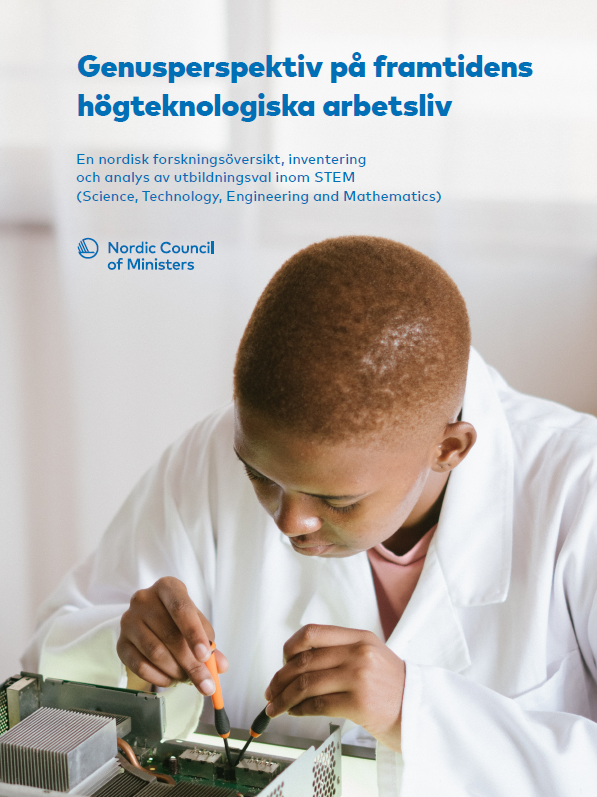On assignment from the Nordic Council of Ministers, NIKK has produced the report Genusperspektiv på framtidens högteknologiska arbetsliv – En nordisk forskningsöversikt om utbildningsval inom STEM (Science, Technology, Engineering and Mathematics) [Gender perspective on the high-tech labour market of the future – A Nordic research overview on education choices within Science, Technology, Engineering and Mathematics (STEM)]. The report provides an overall picture of what the research says, and make an inventory and analysis of initiatives in the STEM sector in the Nordic countries. An international outlook gives examples of how countries outside the Nordic countries are handling skewed recruitment to the STEM area.
“The picture is clear. Globally as well as in the Nordic countries, these initiatives generally aim in various ways to change girls and women rather than challenge gendered privilege, organisations or the gender norms surrounding science, technology, engineering, mathematics and other science subjects. This renders the structural barriers that exist invisible,” says Ulrika Jansson, who wrote the report together with Jimmy Sand.
Furthermore, in these initiatives, there is an assumption that women need to be inspired and supported through role models and mentoring.
“Most likely some of these initiatives do help girls and women to fit into courses and study programmes and professions dominated by men and a masculine subject area and occupational culture. But they are unlikely to challenge either established privilege or norms, nor to lead to radical change in mainstream activities and the organisation of work,” says Ulrika Jansson.
The need for a broader approach
The report shows that a much broader approach is needed. Looking at the situation from an organisation theory gender perspective, clear patterns emerge. Explanatory models for gendered study choices, gender-segregated labour markets and gender imbalance in the STEM area show very clearly that notions, assumptions and norms about gender, women and men, femininity and masculinity, set the framework and stipulate the terms for people’s scope for action. Heterosexuality is the norm and ethnicity or functional diversity is in principle not visible at all.
“Connections between men, masculinity and technical knowledge are created in everyday practices and are neither natural nor universal. These connections are made in a variety of ways, by different actors and in different contexts,” says Jimmy Sand.
In addition, there are norms in the education system, with gendered ideals of science, knowledge and science subjects that create limits for inclusive and sustainable education and a sustainable working life.
“All in all, these norms set the terms for both men’s and women’s study and career choices and in the labour market, at both the individual and structural levels. Terms where the outcome does not benefit women, but does benefit men,” says Jimmy Sand.For a sustainable and gender-equal working life in the future, it is important to ask other questions about skills and occupations as well, the report shows. How will the Nordic countries’ skills supply be guaranteed and what might this look like in order to increase gender equality? What types of skills do the Nordic countries need, apart from more engineers?
The research overview that is the central part of this report is based on a systematic review of 199 articles published in scholarly journals published during the period 2000–2019. Read the full report here (link).
Read more about NIKK, Nordic Information on Gender

